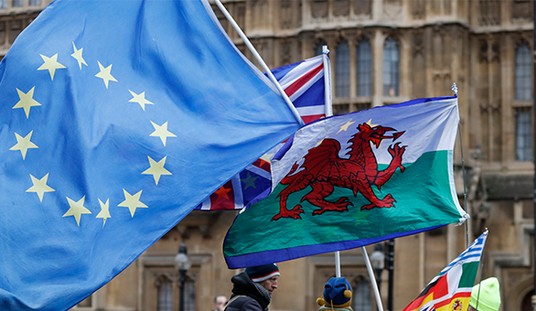Critics have begun using the words “war crime” to describe a US airstrike in Kunduz that hit a Doctors Without Borders facility, killing 22 people, including children. The US pushed back against the allegations, claiming that they were responding to a call for close air support from Afghan forces and did not know of any civilian medical facilities in the area:
Afghan forces called for U.S. air support while fighting the Taliban in Kunduz shortly before a hospital was struck, killing 22 people, the U.S. commander of international forces in Afghanistan said on Monday. …
“We have now learned that on Oct. 3 Afghan forces advised that they were taking fire from enemy positions and asked for air support from U.S. forces,” U.S. General John Campbell said in a briefing with reporters. “An air strike was then called to eliminate the Taliban threat and several civilians were accidentally struck.”
Campbell did not explicitly state that the strike on the hospital came from the US, but thus far that seems to be the most likely explanation. It also differs from the first explanation, which is that the air strike got called in by US forces, a point Campbell conceded in his statement. He and Barack Obama have promised a full investigation to find answers in how this building got targeted.
Doctors Without Borders, known by its French acronym MSF, wants an independent inquiry into the presumed “war crime”:
“Under the clear presumption that a war crime has been committed, MSF demands that a full and transparent investigation into the event be conducted by an independent international body,” the organization said. “Relying only on an internal investigation by a party to the conflict would be wholly insufficient.”
There seems to be some question as to whether there were attacks on Afghan forces originating in or near the medical facility, or so it appears from the debate. The Afghan police insist that the Taliban had set up firing positions in the compound:
Accounts differed as to whether there had been fighting around the hospital that might have precipitated the strike. Three hospital employees, an aide who was wounded in the bombing and two nurses who emerged unscathed, said that there had been no fighting in the hospital’s immediate vicinity and no Taliban fighters in the hospital.
But a Kunduz police spokesman, Sayed Sarwar Hussaini, said Taliban fighters had entered the hospital and were using it as a firing position. The hospital treated the wounded from all sides of the conflict, a policy that has long irked Afghan security forces. In a Twitter post, Arjan Hehenkamp, director of Doctors Without Borders in the Netherlands, denied that Taliban fighters had been in the hospital, saying that only staff, patients and caretakers had been inside.
Even so, that wouldn’t necessarily let the US or Afghans off the hook:
Establishing whether the bombing constitutes a war crime, as MSF asserts, will require a detailed picture of what exactly happened — something that’s not available right now.
“You cannot, under the laws of war, attack sites such as hospitals, schools, religious buildings,” said Gregory Steven Gordon, an associate professor of law at the Chinese University of Hong Kong. “However, the hospital as a building can lose its immunity if it’s being used by the enemy for military attacks.”
Gordon, a war crimes prosecution expert, told CNN that investigators will need to find out “exactly what kind of attacks were being carried on in the hospital, if any.”
“The United States, even if attacks were being carried out from the hospital, would have to respect certain principles of precaution,” he said. “In other words, they would have to make sure they were using weapons that would be the least destructive, they would have to give warnings to civilians to get them out.”
In any case, MSF says there was no one firing from their compound before the air strike. NBC covers the allegations of war crimes, but also notes that Afghanistan is “quickly becoming a major headache” for the Obama administration. If so, it’s one of their own making, with six years of announcing withdrawal timetables and retreats throughout the region:
Update: Initially, I wanted to post this to create a space for debating it, but I have a few more thoughts about the implications of this story. First, there is nothing mutually exclusive about the US conducting an investigation and an independent agency conducting one of its own. The US command structure would be derelict in its duty not to conduct an investigation into a strike on a medical facility in a war zone, regardless of any other investigations.
With that said, the Taliban isn’t exactly known for its discipline in avoiding civilian casualties. This is a group that deliberately targets civilians for its terror attacks as well as engages in operations against military positions. It’s not difficult to imagine them using a medical facility as cover for launching those attacks. That’s what an investigation needs to determine — whether the Taliban were in the compound and launching attacks, and if not, who called in the strike on the facility and why. Why not wait for that information before jumping to conclusions?








Join the conversation as a VIP Member